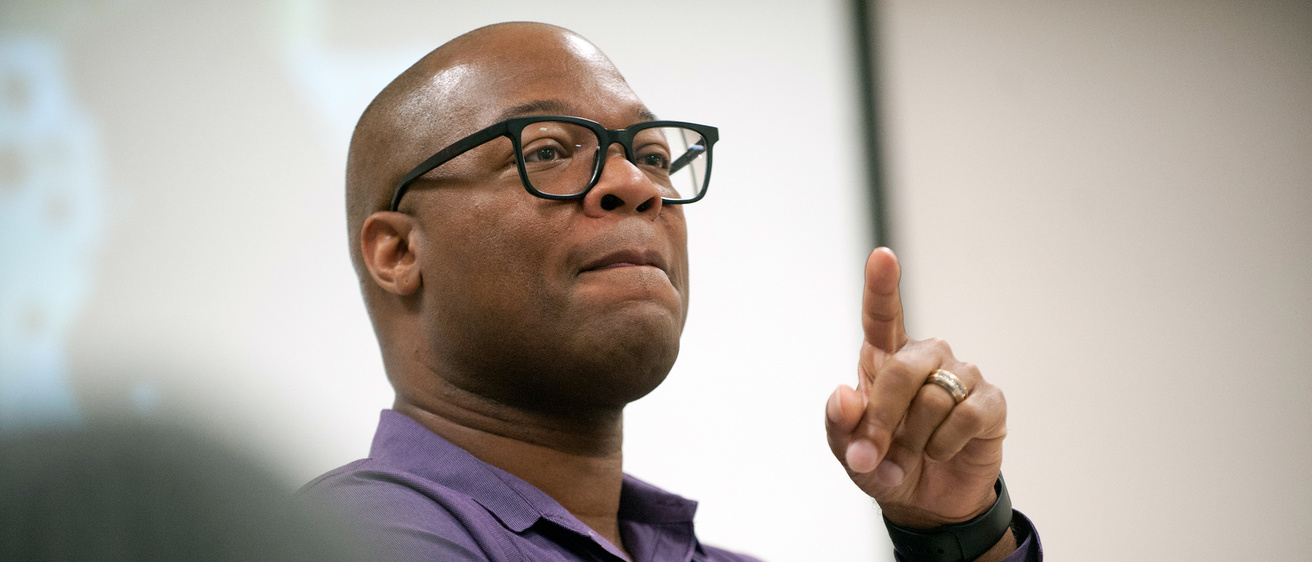
Breadcrumb
- Home
- Research and Creative Work
Research and Creative Work
Main navigation
The research and creative work of the faculty in the African American Studies Program encompasses a wide variety of areas and aspects. Examples include the following:
Venise Berry
Topic of Research: Exploring media, African Americans and popular culture.
Type of Research: Published widely in creative and academic circles with numerous books, short stories, journal articles, and book chapters.
Importance of Research: When racism rears its ugly head there is an immediate backlash, but racialism often sneaks by molding itself into simple and problematic forms of racial thought and action. While overt and malicious racism still exists, it is important to recognize that there is something very different going on in the 21st century. I call it racialism and it is prominent in the media.
Racialism is a cyclical process where certain images, ideas, and issues are produced, distributed, and consumed, repetitively and intertextually. Unfortunately, stereotypes, stigmas, biases, and historical myths about African American culture are normalized through this process. These media representations ultimately shape and influence societal ideology and behavior.
Tim Havens
Type of Research: television studies, critical media industry studies.
Importance of Research: as the world becomes more diverse, more globalized, and more saturated with media, understanding how and why the media culture we consume get produced, why it looks as it does, and where it travels become increasingly urgent questions.
Ashley Howard
Topic of Research: urban rebellions; anti-black violence, African Americans in the Midwest.
Type of Research: social history; oral history.
Importance of Research: my research investigates violent episodes in black Midwestern history demonstrating that race, class, gender, and region play critical and overlapping roles in defining resistance to racialized oppression.
Other: I am a member of the Scholar's Strategy Network.
Alfred Martin
Alfred Martin's research is concerned with the cultural production and consumption of media, particularly with respect to blackness, gender and sexualities.
His research is rooted in qualitative media and cultural studies and focuses on media production studies, audience reception practices, media histories and comedy studies.
Victor Ray
Victor Ray’s research applies critical race theory to classic sociological questions. He is currently working on two book manuscripts: a project focused on race and organizational theory and an edited volume (co-edited with Jennifer Mueller) on race and sociological theory writ large. His work has been published in the American Sociological Review, American Behavioral Scientist, Annals of the American Academy of Political and Social Science, Contexts, Ethnic and Racial Studies, The Journal of Marriage and Family, Sociology of Race and Ethnicity and Sociological Theory. In addition to this research, Victor is also an active public scholar, publishing commentary in outlets such as The Washington Post, Newsweek, and Boston Review. Victor’s work has been funded by the Ford Foundation, the National Science Foundation, among others.
Louise Seamster
Louise Seamster studies race and economic inequality, particularly in cities. She writes about racial politics and urban development, emergency financial management, debt, and the myth of racial progress. Her research centers on the interactive financial and symbolic factors reproducing racial inequality across multiple domains. Her current book project uses Benton Harbor as a case study to understand competing approaches to time, money and property in cities. She is working on two additional projects around race, governance and infrastructure in Flint and Tamina, Texas. Another line of research examines racial disparities in debt and debt markets, including “predatory inclusion” in student debt, and the different meaning of debt for black and white families. Finally, she is also working in the arena of algorithmic inequality. Her work has been published in Contexts, Sociological Theory, Du Bois Review, Social Currents, and Ethnic and Racial Studies, among other academic outlets, and has guest edited five special issues on issues around race.